
Find Help
More Items From Ergsy search
-

Are there legal guidelines for sewage discharge into UK waters?
Relevance: 100%
-

What role do water companies play in sewage pollution?
Relevance: 61%
-
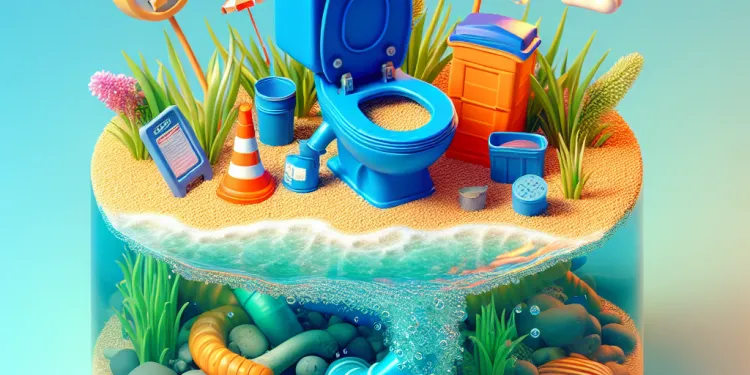
Is sewage a problem on UK beaches?
Relevance: 56%
-

What agencies monitor and regulate sewage pollution in the UK?
Relevance: 54%
-

Has sewage pollution in the UK improved over recent years?
Relevance: 49%
-
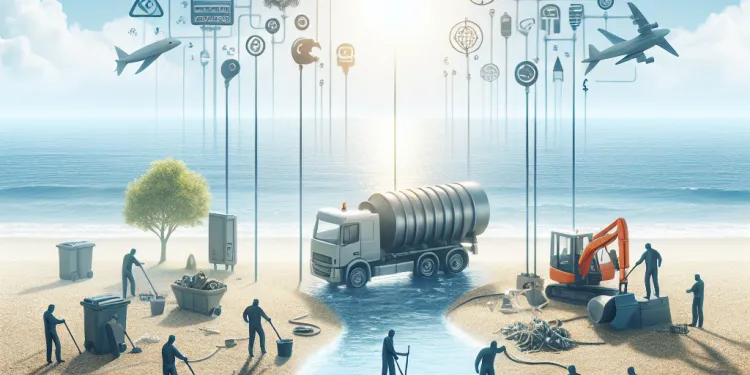
What is being done to address sewage pollution on UK beaches?
Relevance: 49%
-
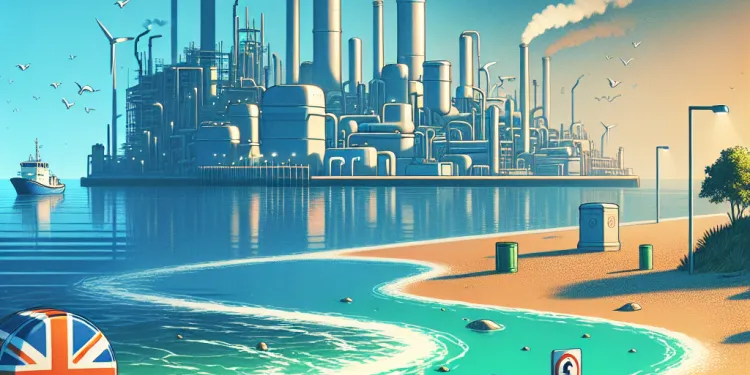
What causes sewage pollution on UK beaches?
Relevance: 48%
-
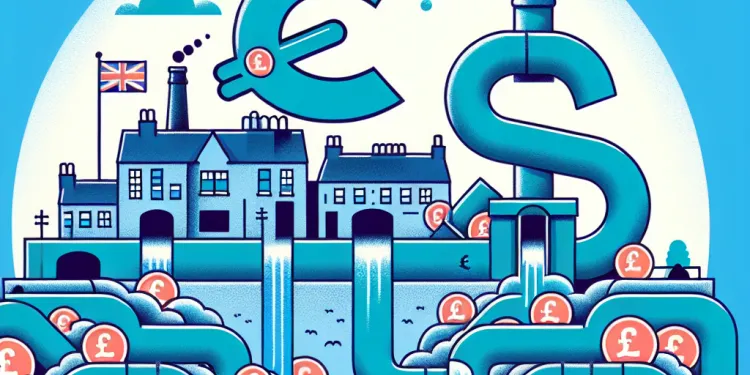
Which UK areas are most affected by sewage pollution?
Relevance: 48%
-
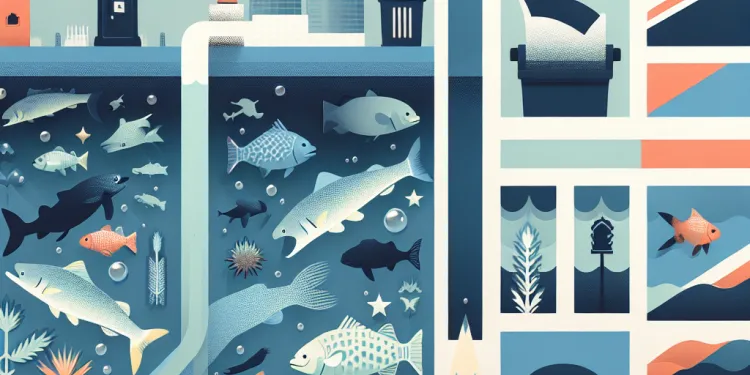
Can sewage pollution impact marine wildlife?
Relevance: 46%
-

Is climate change affecting sewage pollution levels?
Relevance: 44%
-
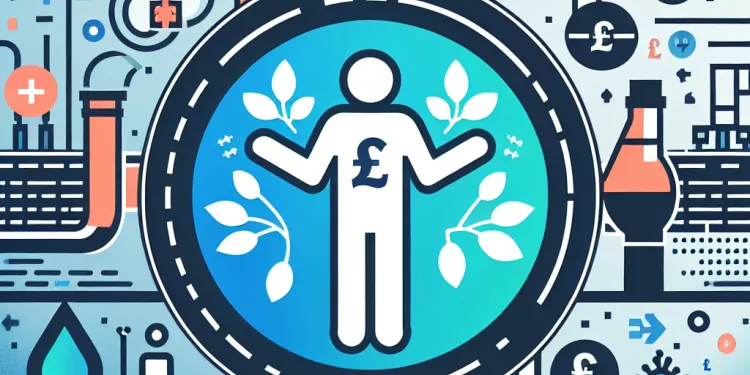
How does sewage pollution affect public health?
Relevance: 42%
-
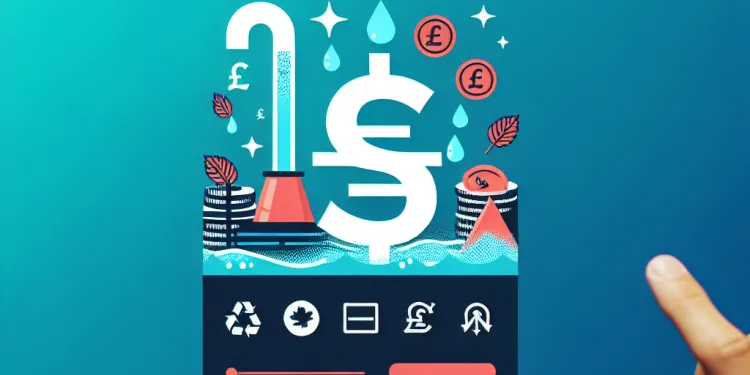
How can individuals help reduce sewage pollution?
Relevance: 41%
-

How can the public find out if a beach has sewage pollution?
Relevance: 41%
-

Is bankruptcy an option for student loan discharge?
Relevance: 33%
-

Are water companies responsible for maintaining water infrastructure in the UK?
Relevance: 29%
-
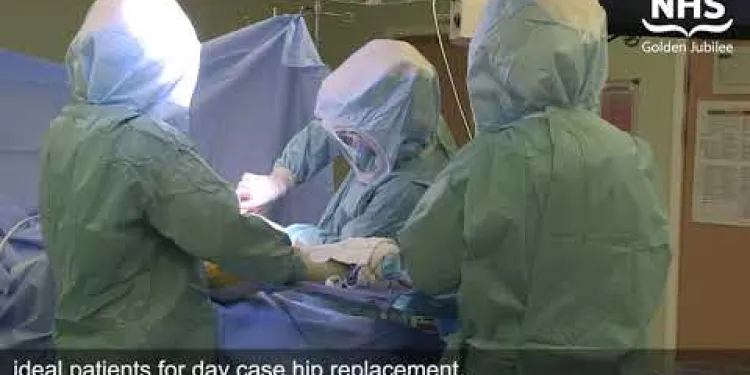
Same day discharge for NHS Golden Jubilee’s hip replacement patients
Relevance: 27%
-

What is a Combined Sewer Overflow (CSO)?
Relevance: 27%
-
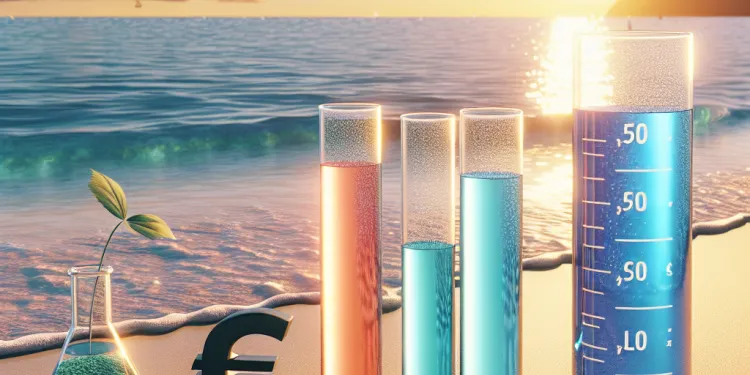
Are some UK beaches rated better for water quality than others?
Relevance: 26%
-

How old is the water infrastructure in the UK?
Relevance: 25%
-
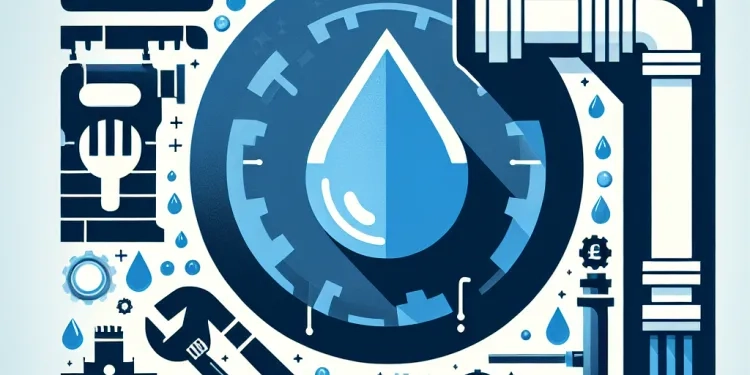
What are common signs of leaks in water infrastructure?
Relevance: 25%
-
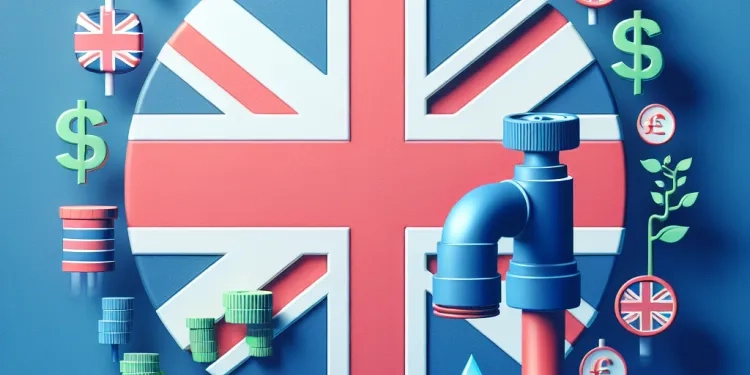
Is a hosepipe ban legally enforceable?
Relevance: 25%
-

How can water become contaminated with E. coli?
Relevance: 25%
-

Is a hosepipe ban legally enforceable?
Relevance: 24%
-

Who regulates the performance and compliance of UK water companies?
Relevance: 24%
-
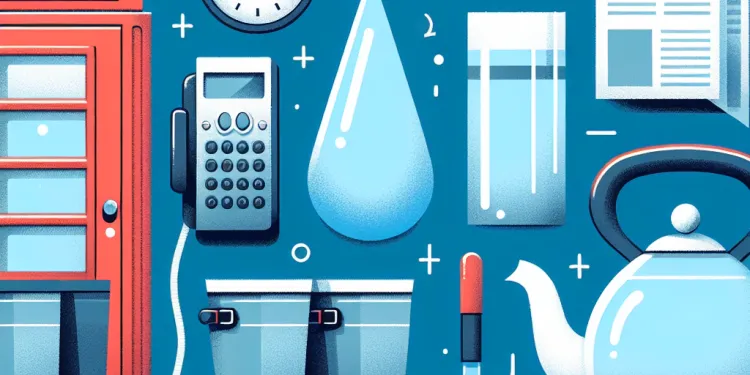
Which UK water companies are going to refund their customers?
Relevance: 24%
-

How do water companies fund infrastructure updates?
Relevance: 23%
-

What does water infrastructure maintenance involve?
Relevance: 23%
-
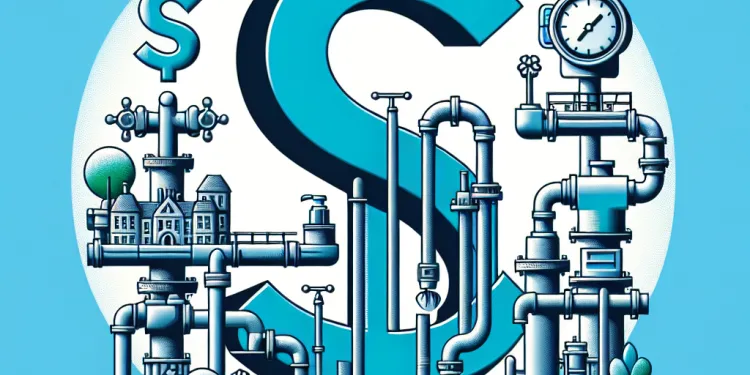
Are there penalties for not maintaining water infrastructure?
Relevance: 23%
-

How many UK water companies are involved in the refund process?
Relevance: 23%
-

Are there penalties for water companies besides issuing refunds?
Relevance: 22%
-

Can water companies enter my property to enforce a hosepipe ban?
Relevance: 22%
-

Does Thames Water enforce a hosepipe ban more than other water authorities?
Relevance: 22%
-

What can I do if the water company doesn’t respond to my claim?
Relevance: 21%
-

What is the role of a water regulator in my claim?
Relevance: 21%
-

Is cryptocurrency legal?
Relevance: 21%
-
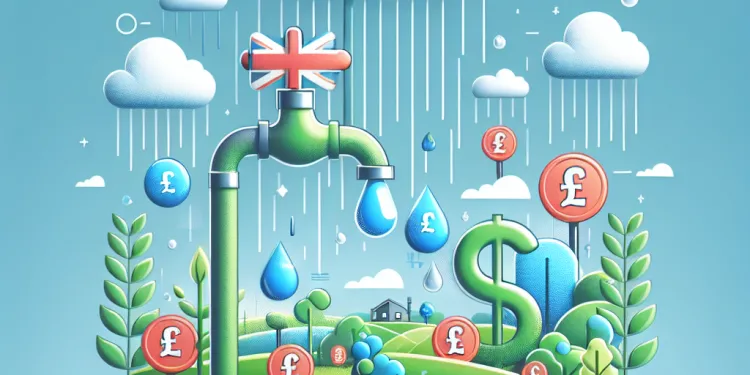
What causes water loss in the UK?
Relevance: 21%
-

Is CBD legal?
Relevance: 21%
-

Are there initiatives to improve water efficiency in infrastructure?
Relevance: 21%
-
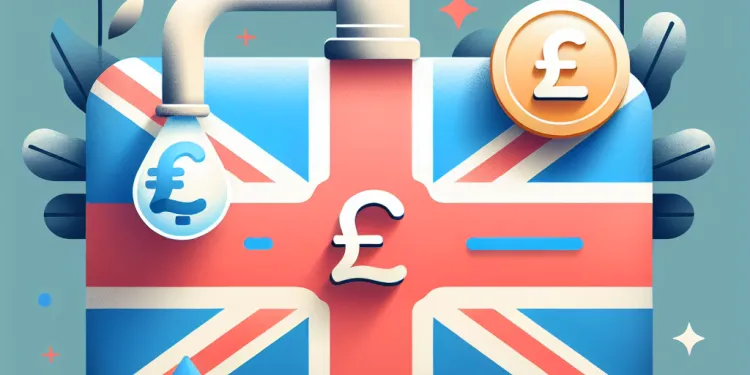
Who regulates water companies in the UK?
Relevance: 21%
-

Do water companies have to update the infrastructure?
Relevance: 21%
Legal Guidelines for Sewage Discharge into UK Waters
Introduction
Sewage discharge into UK waters is subject to strict legal guidelines to protect both the environment and public health. These regulations are enforced by various environmental agencies and are designed to ensure that any discharge meets specific standards before entering water bodies. This is crucial in maintaining water quality and supporting aquatic ecosystems.Regulatory Framework
The primary legislation governing sewage discharge in the UK is the Water Resources Act 1991, which sets out the framework for water quality and discharge consents. In addition, the Environmental Permitting (England and Wales) Regulations 2016 and the Water Environment (Water Framework Directive) (England and Wales) Regulations 2017 are critical pieces of legislation. These laws require that any entity wishing to discharge sewage into UK waters must first obtain a permit.Environmental Permits and Consents
To discharge sewage legally, operators must apply for an environmental permit from the Environment Agency in England, the Scottish Environment Protection Agency in Scotland, Natural Resources Wales, or the Northern Ireland Environment Agency. These permits stipulate conditions such as the maximum levels of pollutants allowed in the discharge and monitoring requirements. Failure to comply with permit conditions can result in significant fines and legal action.Water Quality Standards
The UK adheres to the European Water Framework Directive, despite Brexit, ensuring high standards of water quality. This directive mandates regular monitoring and assessment of water bodies and sets targets for reducing pollution. The UK aims to achieve "good" status for all water bodies, which includes controlling sewage discharge parameters such as biochemical oxygen demand (BOD), suspended solids, and nutrient levels.Challenges and Enforcement
While stringent regulations are in place, enforcement can be challenging. Issues such as storm overflows, where heavy rain causes sewage systems to overflow, remain a concern. Authorities use inspections and fines to ensure compliance and work with water companies to upgrade infrastructure and prevent illegal discharges. Public involvement and reporting can also aid enforcement efforts.Conclusion
Legal guidelines for sewage discharge into UK waters are comprehensive, focusing on safeguarding water quality and ecological integrity. By adhering to these regulations and continually monitoring and improving discharge practices, the UK strives to protect its waterways for future generations. Public awareness and governmental oversight are crucial in this ongoing effort.Rules for Letting Sewage into UK Waters
Introduction
In the UK, there are strict rules about putting sewage into water. These rules help keep the environment and people healthy. Different groups make sure these rules are followed. This keeps the water clean and safe for fish and plants.The Rules
The main law about sewage in water is the Water Resources Act 1991. It tells us what is allowed and not allowed with sewage. There are also two other important rules: the Environmental Permitting Regulations 2016 and the Water Environment Regulations 2017. If someone wants to put sewage into water, they need a special permit (like permission) first.Getting Permission
To put sewage into water legally, you must get a permit from the right agency. In England, it's the Environment Agency. In Scotland, it's the Scottish Environment Protection Agency. In Wales, it's Natural Resources Wales. In Northern Ireland, it's the Northern Ireland Environment Agency. The permit will say how much pollution is allowed and how often checks must happen. Breaking the rules can lead to big fines or trouble with the law.Water Quality
The UK follows European rules to keep water clean, even after Brexit. These rules say water must be checked often and pollution must be reduced. The goal is good quality water everywhere. This means checking things like oxygen levels, solid bits in water, and nutrients in sewage.Challenges
Even with strong rules, it's sometimes hard to follow them all the time. Big storms can cause sewage systems to overflow, which is a problem. The authorities do checks and give fines if rules are broken. They work with water companies to fix problems and stop bad sewage practices. People can also help by reporting any problems they see.Conclusion
The rules for sewage in UK waters are detailed and aim to keep the water and environment safe. By following these rules and checking on water quality, the UK wants to protect its rivers, lakes, and seas for the future. It's important for everyone to know about these rules and for the government to keep watch.Frequently Asked Questions
Are there legal guidelines for sewage discharge into UK waters?
Yes, there are legal guidelines in the UK governing the discharge of sewage into water bodies to protect public health and the environment.
Which authorities regulate sewage discharge in the UK?
The Environment Agency in England, the Scottish Environment Protection Agency, Natural Resources Wales, and the Northern Ireland Environment Agency regulate sewage discharge in the respective regions.
What legislation applies to sewage discharge in the UK?
The Water Resources Act 1991, the Environmental Permitting Regulations 2016, and the Urban Waste Water Treatment Regulations 1994 are key pieces of legislation governing sewage discharge in the UK.
Are permits required for sewage discharge into UK waters?
Yes, facilities discharging sewage need to obtain an environmental permit, which sets conditions to minimize pollution and protect the environment.
What are the penalties for illegal sewage discharge in the UK?
Penalties can include fines, legal action, and orders to make improvements. Serious offences may lead to criminal charges against responsible parties.
How does the UK ensure compliance with sewage discharge regulations?
Regulatory agencies conduct inspections, monitor water quality, and require self-reporting from permit holders to ensure compliance with discharge regulations.
Do sewage treatment facilities reduce environmental impact in the UK?
Yes, treatment facilities are designed to remove contaminants before release, significantly reducing the environmental impact of sewage discharge.
What role does the public play in regulating sewage discharge?
The public can report pollution incidents to environmental agencies and participate in consultations on proposed discharge permits.
Are there standards for sewage treatment in the UK?
Yes, the Urban Waste Water Treatment Regulations set standards for treatment processes to ensure environmental protection and water quality.
What are combined sewer overflows (CSOs) and are they regulated?
CSOs are outlets that release sewage and stormwater during heavy rain to prevent system overload. They are regulated to minimize environmental impact.
How is the environmental impact of sewage discharge assessed?
Environmental Impact Assessments (EIAs) may be required for significant discharges, evaluating potential effects on surrounding ecosystems and communities.
Are there guidelines for sewage discharge near sensitive areas?
Yes, stricter guidelines apply to discharges near sensitive areas such as bathing waters, marine conservation zones, and protected habitats.
How often are sewage discharge guidelines updated in the UK?
Guidelines and regulations are periodically reviewed and updated to reflect new scientific findings and technological advancements.
What is the role of water companies in sewage management?
Water companies are responsible for the collection, treatment, and safe discharge of sewage, complying with regulatory standards and permits.
Can discharged sewage affect human health?
If untreated or improperly treated sewage is discharged, it can pose health risks through waterborne diseases and contamination of drinking water sources.
What are the rules for putting dirty water into UK seas and rivers?
Yes, there are rules in the UK about putting sewage into water. These rules help keep people and the environment safe.
Who are the bosses that check how sewage is released in the UK?
The Environment Agency in England, the Scottish Environment Protection Agency, Natural Resources Wales, and the Northern Ireland Environment Agency are groups that take care of how sewage is handled in their areas.
Here are some tips to help understand this better:
- Think of "sewage" as dirty water that needs to be cleaned.
- The "Environment Agency" is a group that helps keep nature clean.
What are the UK rules about putting dirty water into rivers and the sea?
In the UK, there are rules about where dirty water can go. These rules help keep our rivers and seas clean. If you want to learn more, you can use tools like pictures or videos that show how it works. Also, asking a teacher or using special apps for learning can be helpful.
The Water Resources Act 1991, the Environmental Permitting Rules 2016, and the Urban Waste Water Cleaning Rules 1994 are important UK laws about sewage.
Do you need a permit to put sewage into UK waters?
Yes, places that let out dirty water need a special permission called an environmental permit. This permission has rules to keep the Earth clean and safe.
What happens if you break the rules about dumping waste in water in the UK?
If someone puts dirty water or waste in rivers or lakes when they are not supposed to, they might get into trouble. This is against the law.
Here are some things that could happen if you break the rules:
- You might have to pay a lot of money as a fine.
- You could have to go to court.
- You might need to clean up the mess.
It helps to use simple tools like pictures or diagrams to understand. You can also ask someone to explain if it's too hard to read. Listening to the information with an audio tool might also help.
If rules are broken, you might have to pay money, go to court, or be told to fix things. If it’s really bad, people might go to jail.
How does the UK check sewage rules are followed?
The UK has rules about where and how sewage (dirty water) can go. They make sure people and companies follow these rules. Here’s how they do it:
- They have inspectors who check the places where sewage goes.
- They test the water to make sure it is clean and safe.
- They use cameras and other tools to watch the pipes and systems.
- If someone breaks the rules, they have to fix it. They might have to pay money too.
You can use tools like picture stories or videos to help understand how sewage rules work.
Regulatory agencies check that everyone follows the rules. They do this by looking at where water goes, checking if the water is clean and safe, and having people with permits say what they are doing. This helps keep the water safe to use.
Here are some tools and tips to help: - Use pictures or charts to understand better. - Read out loud and discuss with someone. - Break information into smaller parts and take breaks.
Do sewage cleaning plants help the environment in the UK?
Sewage cleaning plants, also called treatment facilities, help clean dirty water. This means less pollution gets into rivers and the sea. This is good for fish, plants, and people.
If you need help reading, ask someone to read with you. You can also use an app that reads text aloud.
Yes, treatment plants clean dirty water. They take out bad stuff before letting the water go back into the environment. This helps keep nature safe and healthy.
How can people help control where dirty water goes?
People can tell special environment groups if they see pollution. They can also share their thoughts on new plans about where companies can let waste go.
Are there rules for cleaning dirty water in the UK?
Yes, there are rules for how to clean dirty water in the UK. These rules make sure the water is safe for the environment and people.
People use special machines to clean the dirty water. There are people who check to make sure the rules are followed.
If reading is hard, you can use:
- Reading apps: These help by reading the text out loud.
- Pictures: Look for pictures about the topic to help understand better.
- Ask for help: It's okay to ask someone to explain things.
Yes, there are rules called the Urban Waste Water Treatment Regulations. These rules say how we should clean dirty water in cities. This helps keep our environment and water clean.
Helpful tools:
- Use pictures to understand water cleaning steps.
- Watch videos about how water is made clean.
- Ask someone to explain big words.
What are combined sewer overflows (CSOs) and are there any rules about them?
CSOs are places where water from toilets and rain goes. During big storms, too much water can cause problems. CSOs help by letting some water out so the system doesn’t break. There are rules to make sure this doesn’t hurt the environment too much.
How do we check if sewage is harming the environment?
When sewage (dirty water) is put into rivers, lakes, or the sea, we need to see if it is causing harm to nature.
Experts look at things like:
- The health of fish and plants in the water.
- If the water looks dirty or smells bad.
- How much sewage is being put in.
Tools to help understand:
- Use pictures to show how clean or dirty the water is.
- Watch videos about keeping water clean.
- Ask someone to explain with simple words and examples.
We might need to do an Environmental Impact Assessment (EIA) if there is going to be a big release of something into the environment. This helps us understand how it might affect animals, plants, and people living nearby.
You can use pictures, videos, or audiobooks to help explain EIAs. Talking with someone about it can also help.
Are there rules for dumping dirty water near important places?
Yes, there are special rules for water going into important places. These places can be beaches where people swim, areas where we protect sea life, and places with special plants and animals.
How often do sewage rules change in the UK?
Rules and guidelines are sometimes checked and changed to include new discoveries and new technology.
What do water companies do with sewage?
Water companies help clean up dirty water.
They take the dirty water from our homes to clean it.
They make sure the water is safe before it goes back to rivers or the sea.
- Supportive tools: Use pictures to show how water is cleaned.
- Techniques: Break down information into simple steps.
Water companies have an important job. They help keep our water clean. First, they collect dirty water, called sewage, from our homes. Then, they clean this water. Finally, they make sure the clean water goes back safely into rivers or the sea. They have to follow rules to do this right.
Can dirty water make people sick?
When sewage, or dirty water, goes into rivers or the sea, it can be bad for people. It might make them sick.
Here are some things you can do to stay safe:
- Always wash your hands with soap and water after touching dirty water.
- Avoid swimming in places where there might be sewage.
- Drink clean water from a safe source.
If you feel sick after being near dirty water, tell an adult or see a doctor.
If dirty water from toilets and sewers is not cleaned and gets into rivers or lakes, it can make people sick. This can happen because the dirty water can carry germs that give people illnesses. It can also make the water people drink unsafe.
To understand this better, you can:
- Use pictures or diagrams to show how clean and dirty water are different.
- Listen to an audio recording of this text.
- Ask someone to explain it using simple words or a story.
Useful Links
Have you found an error, or do you have a link or some information you would like to share? Please let us know using the form below.
-->
This website offers general information and is not a substitute for professional advice.
Always seek guidance from qualified professionals.
If you have any medical concerns or need urgent help, contact a healthcare professional or emergency services immediately.
Some of this content was generated with AI assistance. We’ve done our best to keep it accurate, helpful, and human-friendly.
- Ergsy carfully checks the information in the videos we provide here.
- Videos shown by Youtube after a video has completed, have NOT been reviewed by ERGSY.
- To view, click the arrow in centre of video.
- Most of the videos you find here will have subtitles and/or closed captions available.
- You may need to turn these on, and choose your preferred language.
- Go to the video you'd like to watch.
- If closed captions (CC) are available, settings will be visible on the bottom right of the video player.
- To turn on Captions, click settings .
- To turn off Captions, click settings again.
More Items From Ergsy search
-

Are there legal guidelines for sewage discharge into UK waters?
Relevance: 100%
-

What role do water companies play in sewage pollution?
Relevance: 61%
-

Is sewage a problem on UK beaches?
Relevance: 56%
-

What agencies monitor and regulate sewage pollution in the UK?
Relevance: 54%
-

Has sewage pollution in the UK improved over recent years?
Relevance: 49%
-

What is being done to address sewage pollution on UK beaches?
Relevance: 49%
-

What causes sewage pollution on UK beaches?
Relevance: 48%
-

Which UK areas are most affected by sewage pollution?
Relevance: 48%
-

Can sewage pollution impact marine wildlife?
Relevance: 46%
-

Is climate change affecting sewage pollution levels?
Relevance: 44%
-

How does sewage pollution affect public health?
Relevance: 42%
-

How can individuals help reduce sewage pollution?
Relevance: 41%
-

How can the public find out if a beach has sewage pollution?
Relevance: 41%
-

Is bankruptcy an option for student loan discharge?
Relevance: 33%
-

Are water companies responsible for maintaining water infrastructure in the UK?
Relevance: 29%
-

Same day discharge for NHS Golden Jubilee’s hip replacement patients
Relevance: 27%
-

What is a Combined Sewer Overflow (CSO)?
Relevance: 27%
-

Are some UK beaches rated better for water quality than others?
Relevance: 26%
-

How old is the water infrastructure in the UK?
Relevance: 25%
-

What are common signs of leaks in water infrastructure?
Relevance: 25%
-

Is a hosepipe ban legally enforceable?
Relevance: 25%
-

How can water become contaminated with E. coli?
Relevance: 25%
-

Is a hosepipe ban legally enforceable?
Relevance: 24%
-

Who regulates the performance and compliance of UK water companies?
Relevance: 24%
-

Which UK water companies are going to refund their customers?
Relevance: 24%
-

How do water companies fund infrastructure updates?
Relevance: 23%
-

What does water infrastructure maintenance involve?
Relevance: 23%
-

Are there penalties for not maintaining water infrastructure?
Relevance: 23%
-

How many UK water companies are involved in the refund process?
Relevance: 23%
-

Are there penalties for water companies besides issuing refunds?
Relevance: 22%
-

Can water companies enter my property to enforce a hosepipe ban?
Relevance: 22%
-

Does Thames Water enforce a hosepipe ban more than other water authorities?
Relevance: 22%
-

What can I do if the water company doesn’t respond to my claim?
Relevance: 21%
-

What is the role of a water regulator in my claim?
Relevance: 21%
-

Is cryptocurrency legal?
Relevance: 21%
-

What causes water loss in the UK?
Relevance: 21%
-

Is CBD legal?
Relevance: 21%
-

Are there initiatives to improve water efficiency in infrastructure?
Relevance: 21%
-

Who regulates water companies in the UK?
Relevance: 21%
-

Do water companies have to update the infrastructure?
Relevance: 21%


